Starfield's New Game Plus narrative is Bethesda RPG innovation at its finest
Opinion | Starfield has narrativized New Game Plus into a philosophical thought experiment
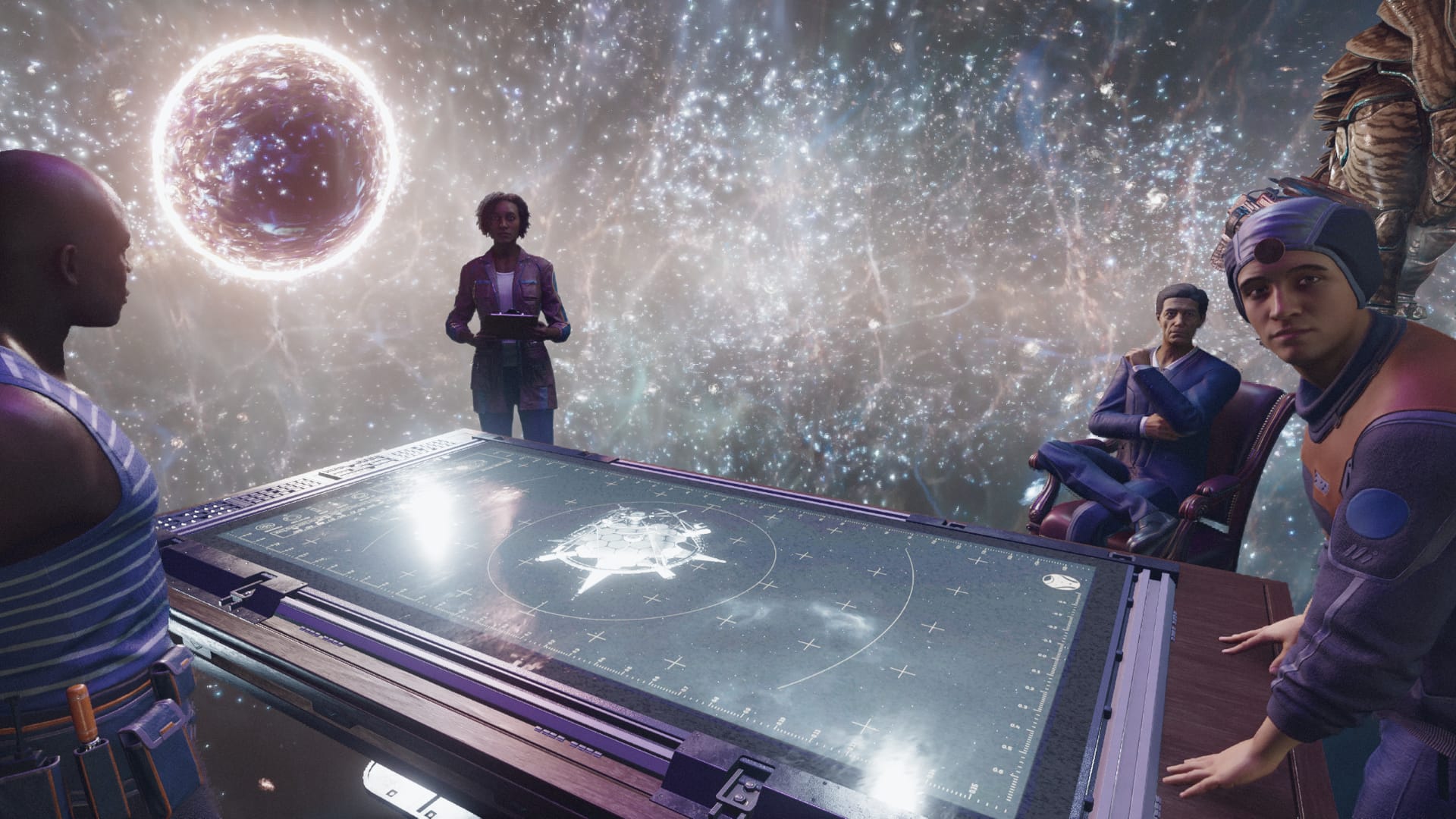
You have probably heard things about New Game Plus in Starfield. Ever since reviews of Bethesda's new RPG dropped, there have been enough cryptic whispers about its unique twist on the classic video game format to fuel a Class B spaceship's worth of internet discourse.
There will be no such crypticism here, so consider this (and the mandated bold and italicized text below) your only spoiler warning – I'll be discussing Starfield's ending in full, unambiguous detail going forward, so only read on if you've either completed the main story, or don't mind learning all about it before you have.
Warning: significant Starfield story spoilers follow
Still here? Great. Let's cut to the chase; Starfield's implementation of New Game Plus is, for my money, the most inspired and ambitious feature within an RPG that is otherwise, for all its scope and scale, a surprisingly old-school, by-the-numbers Bethesda game.
That said, I won't be joining the chorus of critics suggesting you make a beeline straight for Starfield's New Game Plus content at the expense of all else. On the contrary, part of the mode's genius is that you could have a perfectly good, and perhaps even profound, reason to avoid it entirely.
See that universe? You can go there
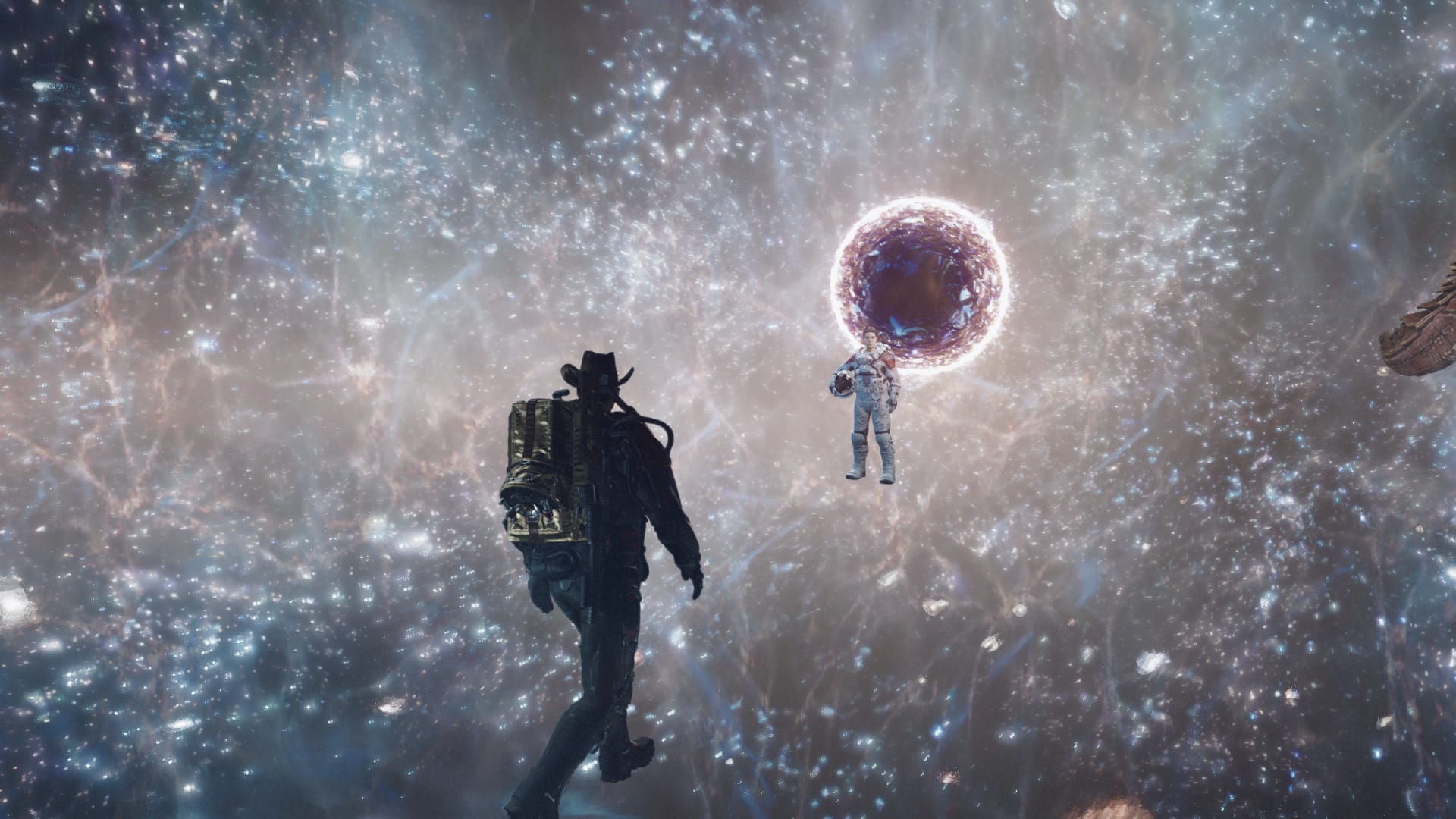
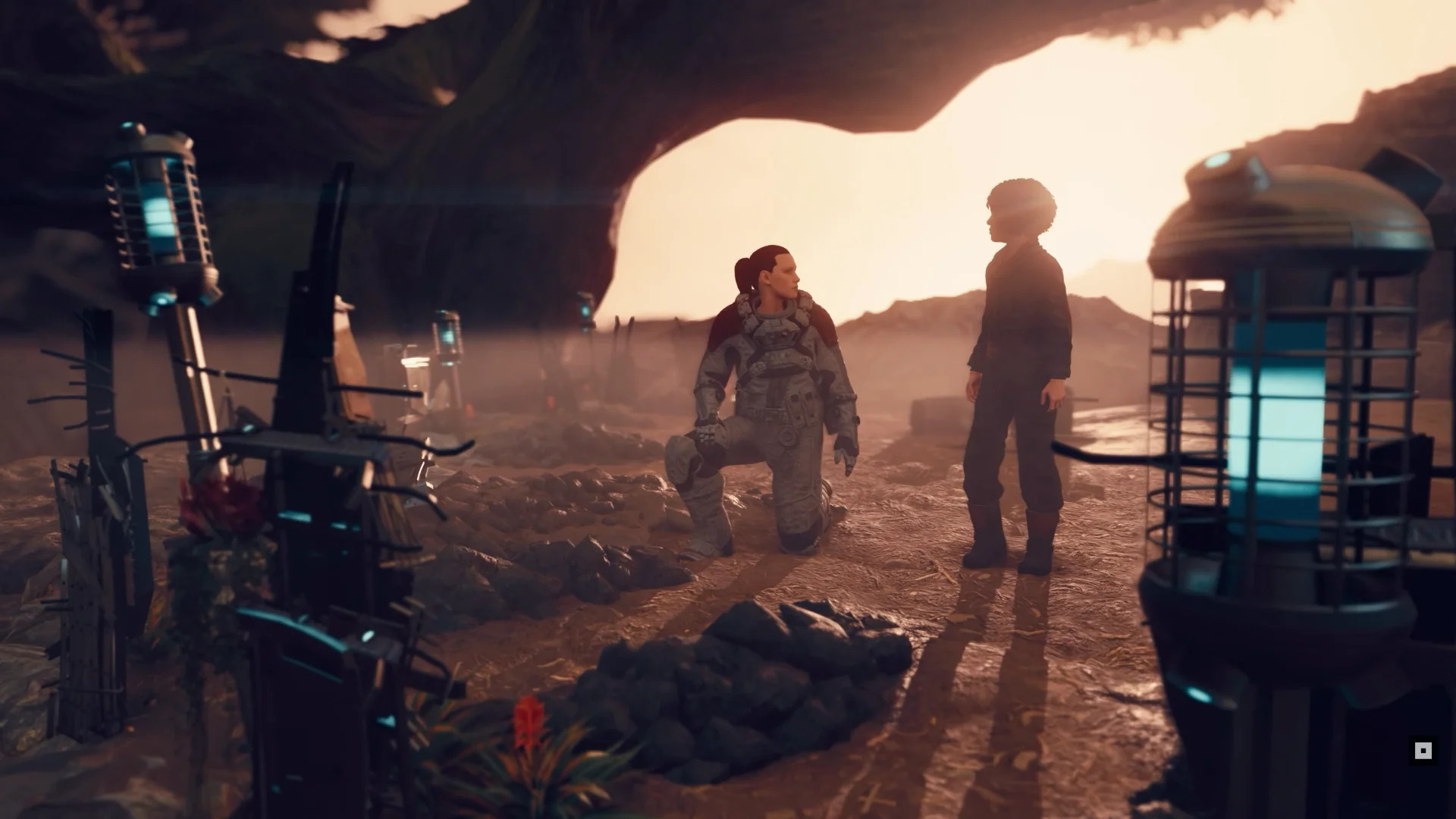
Starfield review: "The best thing Bethesda's done since Oblivion"
To recap, Starfield's main quest line charts the adventures of Constellation, a legendary explorer's league, as it seeks to uncover the truth behind a set of mysterious Artifacts that have started to pop up across the galaxy. You eventually learn that these Artifacts are pieces of a puzzle which point towards The Unity; a gateway at the center of the universe offering access to countless others.
Yes, Starfield is another multiverse story, but the rules it establishes around inter-dimensional travel are somewhat more rigid than those seen in Rick & Morty or various Marvel movies. Once the player finds The Unity at the end of the campaign, they can choose to either pass through, and emerge into another universe as "Starborn", or stay behind in their own world, relinquishing the opportunity to grow in their Starborn powers.
Sign up to the GamesRadar+ Newsletter
Weekly digests, tales from the communities you love, and more
Entering The Unity, and coming out the other side, is essentially Starfield's answer to New Game Plus. You begin your adventure once again, but now advantaged with all of the knowledge obtained from your travels thus far, alongside the skills, traits, and Starborn powers in your possession, the latter of which can be upgraded further by visiting the very same temples you found in your previous universe. The trade-off, of course, is permanently losing all of your story progress, equipment, ships, outposts, and credits from that universe, although much of the main questline can now be bypassed thanks to some newly unlocked conversation options with key NPCs.
It's a decision that, at first, might seem like a no-brainer. Of course you would want to become Starborn. Who wouldn't? Bethesda even sweetens the deal for those who take the one-way trip, with some high-level armor and their very own Starborn spaceship awaiting them on the other side, both of which can continue to be upgraded each and every time they pass through The Unity. With all that on offer, the opportunity to cycle through universe upon universe, growing in power and might with every subsequent trip, will be music to the ears for certain types of Bethesda players; an infinite loop of play tying up the studio's "forever game" design philosophy in one perfect, ouroboric bow.
And yet, a cautionary fable exists for those who plan to venture down this road of the infinite. You may have even met him in New Atlantis before signing up to Constellation. He's known as The Hunter, a Starborn who has traipsed through myriad universes, ad infinitum, in search of more temples, more Artifacts, and perhaps even the mysterious creators behind all of it.
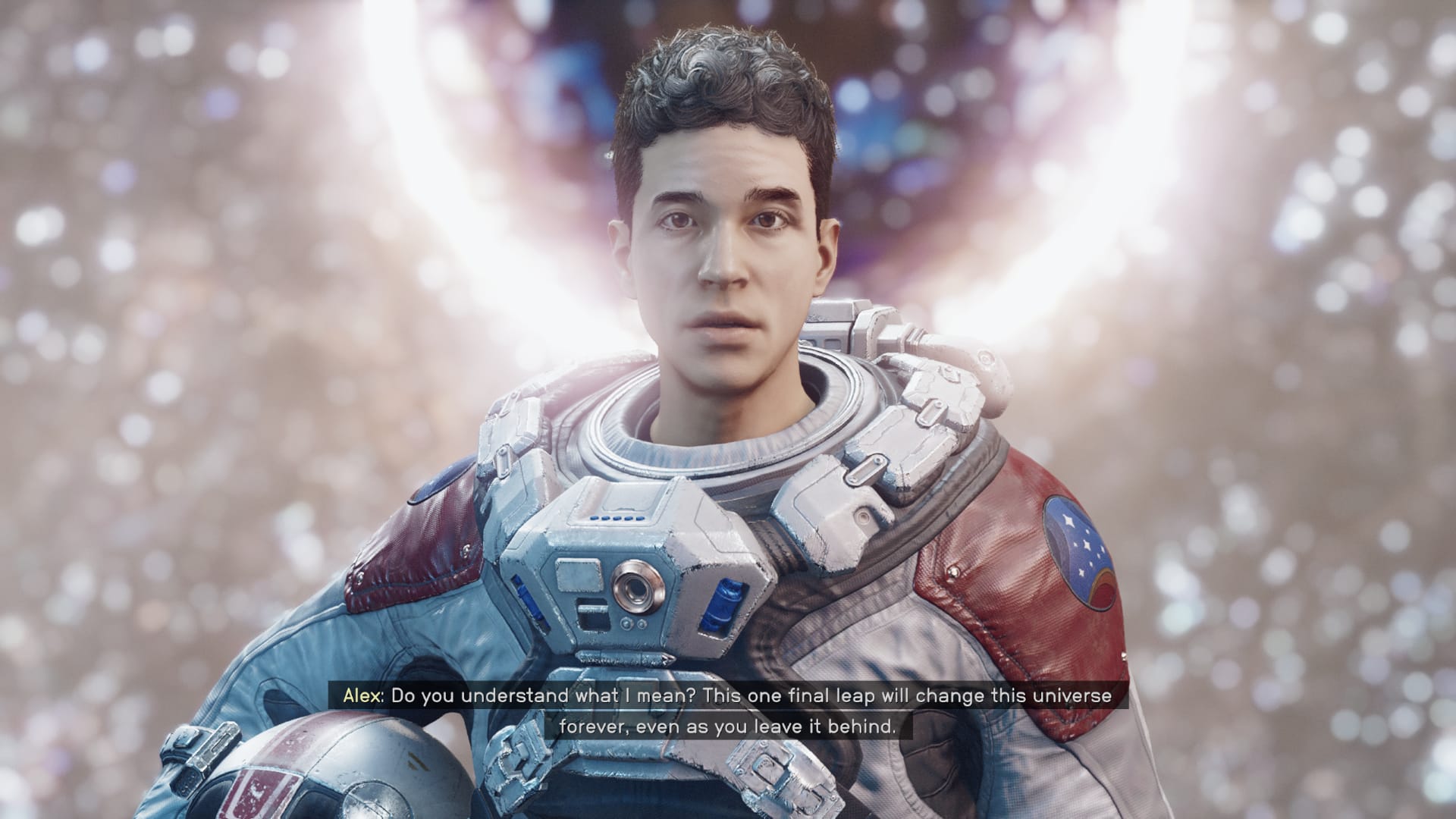
"It's no wonder that many other players are instead opting for a different path, resisting the temptations of The Unity to settle down into their original world for good."
An eternity searching for meaning, however, has left The Hunter jaded to the very nature of existence, his humanity eroded away in a ceaseless pilgrimage across the great cosmos, warping his relationship to the world around him. It's no surprise, then, that he comes across as a misanthropic nihilist, someone who views life as nothing more than a game of Darwinian logic. What value does the stuff of life have, after all, when life itself loses all meaning and perspective?
The Hunter is not exactly alone in this thinking, either. Scrawl through the Starfield Reddit page, and you'll find a small army of players who have followed in his footsteps, their wide-eyed ambitions eventually deteriorating into empty nonchalance as their pursuit of higher Starborn status reduces itself to an isolating grind for power.
It's no wonder that many other players are instead opting for a different path, resisting the temptations of The Unity to settle down into their original world for good. This approach maintains that the joy of Starfield is not in conquering multiple universes, but simply appreciating the one you call home. It may mean rejecting the identity of Starborn, and all the bells and whistles that come with it, but some would call that a worthy sacrifice for holding onto the world you've already invested so much of yourself into.
Others, of course, would disagree, but that's kind of the point. The choice is meant to be a difficult one; a working thought experiment situated right in the center of classic philosophical debates on enlightenment, existentialism, and the source of true contentment. More than that, though, it's an incredibly clever move on Bethesda's part, narrativising New Game Plus into something far more than just a bonus mode for completionists.
In this way, Starfield hold noteable parallels to Supergiant Games' Hades, which also took a classic video game mechanic (in that case, the roguelike structure), and integrating it into the fabric of its story, recontextualised with thematic resonance and emotional weight. Hades was lauded at the time for subverting expectations around archetypal game design, and Starfield deserves to be equally commended for doing the same with New Game Plus.
The eternal question
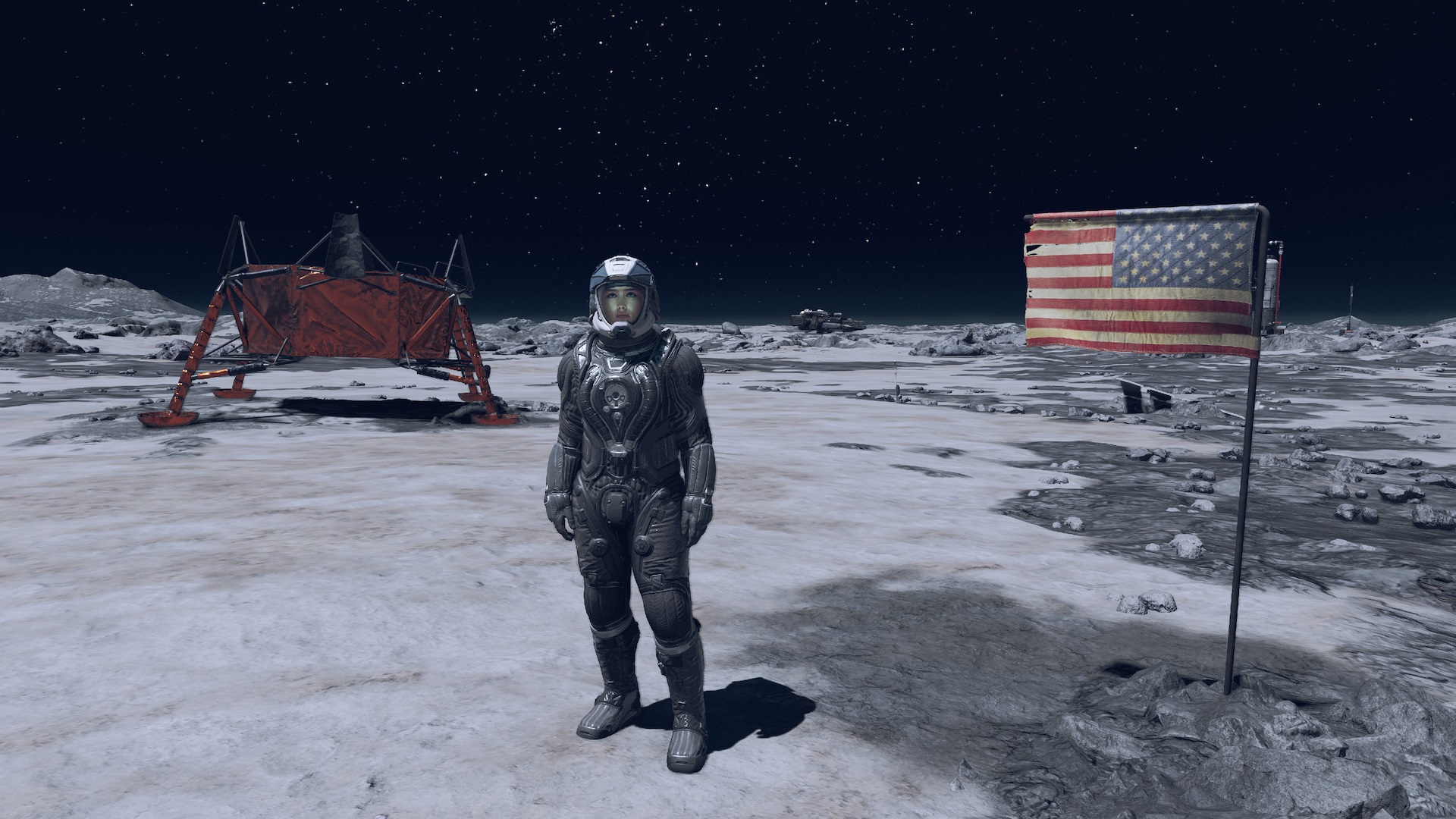
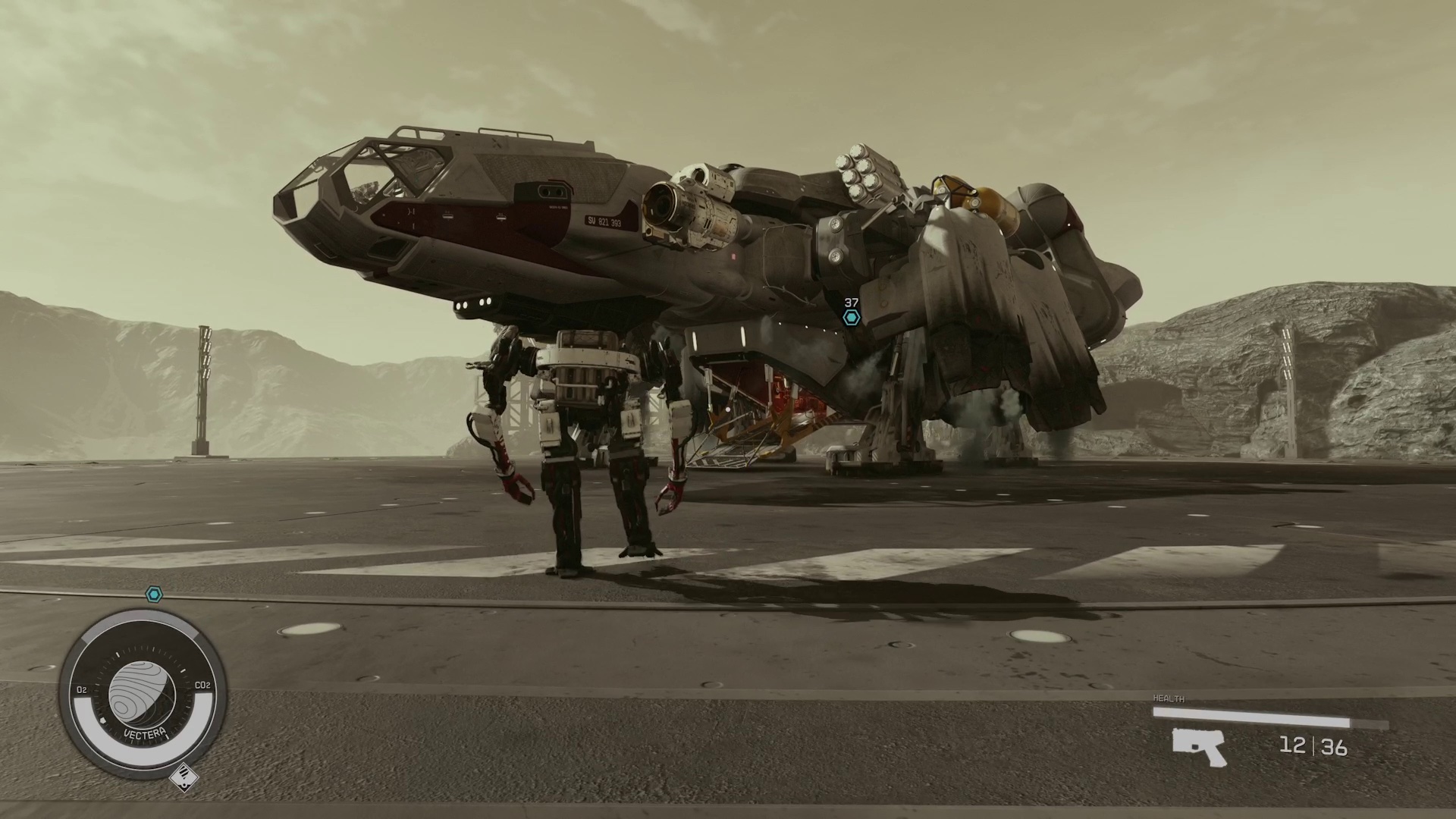
My own Starfield character had lost his traveling companion, Sarah, to The Hunter's attack on The Eye during the third act of the campaign. From a role-playing perspective, then, they had extra incentive to make the jump to a new universe, where another version of Sarah may still be alive. But, when the time came to make the decision, the great iridescent abyss of The Unity staring back at me, I began to wonder what I would really be losing in the crossing.
All of the relationships I'd forged with Constellation members and other friends across the galaxy, yes, but also my relationship with the game itself. The choice between entering The Unity, or walking away, was ultimately a choice about the kind of experience I wanted Starfield to be; one in which my actions held a sense of weight and permanence, or one that allowed me to treat its world like a single-use sandbox repeatedly sacrificed at the altar of greater power.
It's true that staying behind would mean giving up on the chance to have Sarah accompany me on my travels once more but, then again, would it not cheapen the death of this universe's Sarah to simply replace her with a parallel counterpart? Death is a part of life, after all; to bypass its permanence would be to compromise on the inalienable experience of the human condition. The fact that a New Game Plus mode, of all things, was sparking my ruminations on this kind of subject matter, speaks to the sophistication of Bethesda's work here, marrying narrative and game design for a soulful, contemplative climax to its futurist fiction.
Starfield starts off as a classic power fantasy, challenging players to discover the age-old question of what lies at the center of the universe. Its answer, however, is another question, one that's much harder to come to an agreement on; what do you want to be at the center of your universe?
Every player will have a different reaction to that challenge, and that's entirely the point. My only advice is this: don't listen to me, or anyone else, about how to respond to the invitation of The Unity. Play Starfield however you like, and when the time comes to make your decision, go with whatever feels right for you.
As for me, I took one last, hard look at The Unity, turned around, and went home. My vast network of research outposts have been milking the solar systems for Titanium ever since.
Here are the best RPGs you should lose your time, and your social life, to right now
I'm GamesRadar's Features Writer, which makes me responsible for gracing the internet with as many of my words as possible, including reviews, previews, interviews, and more. Lucky internet!



